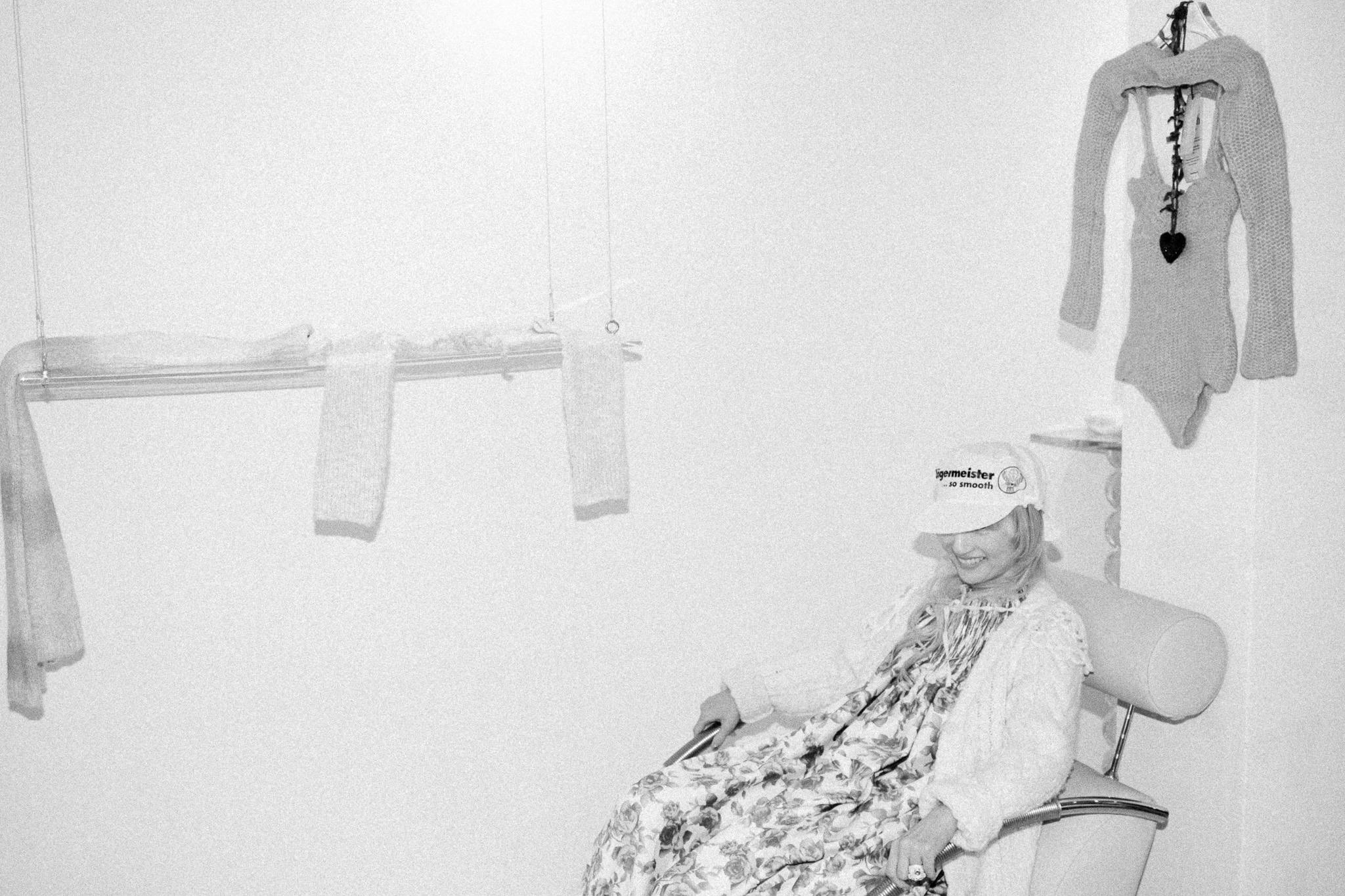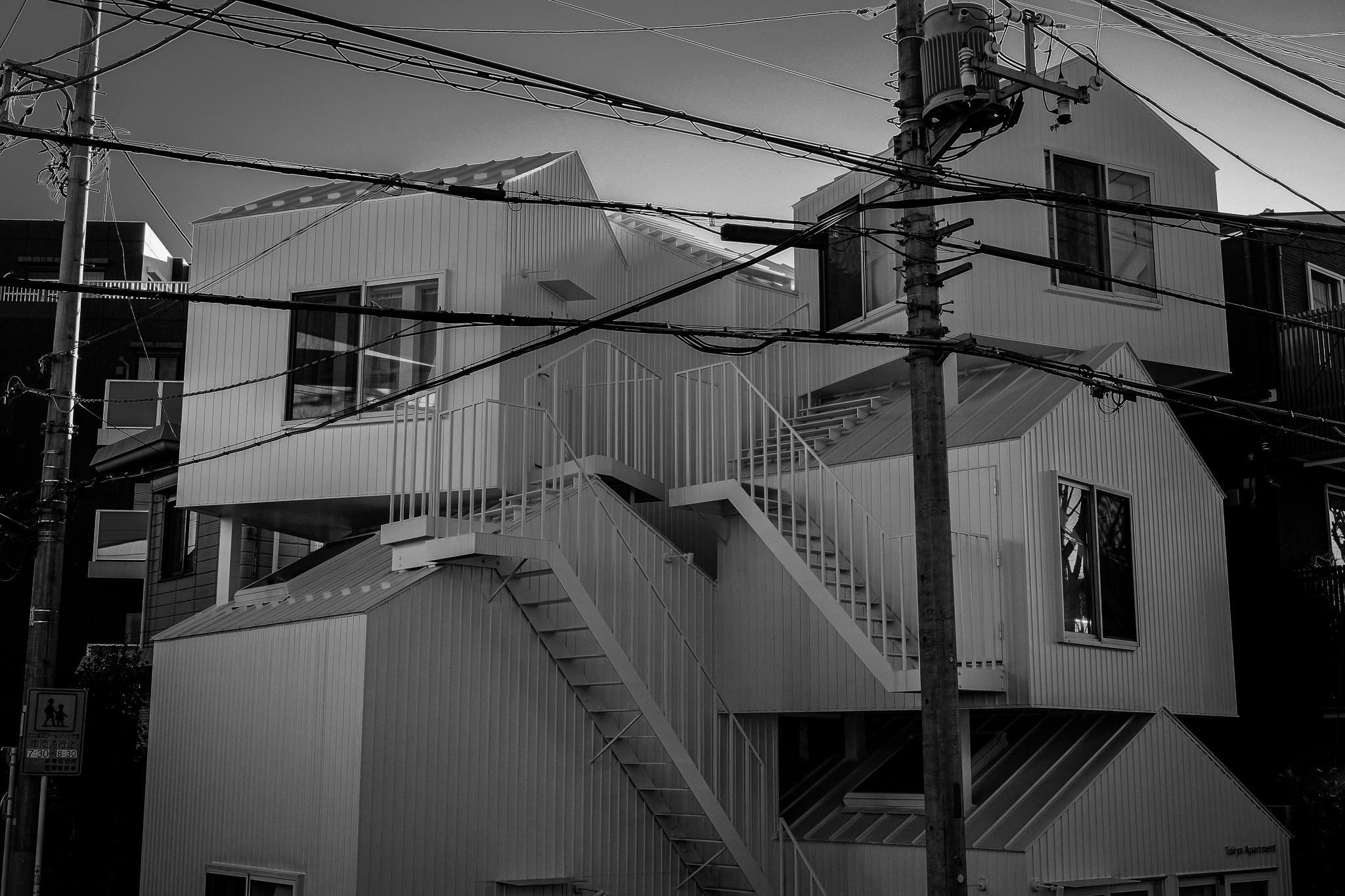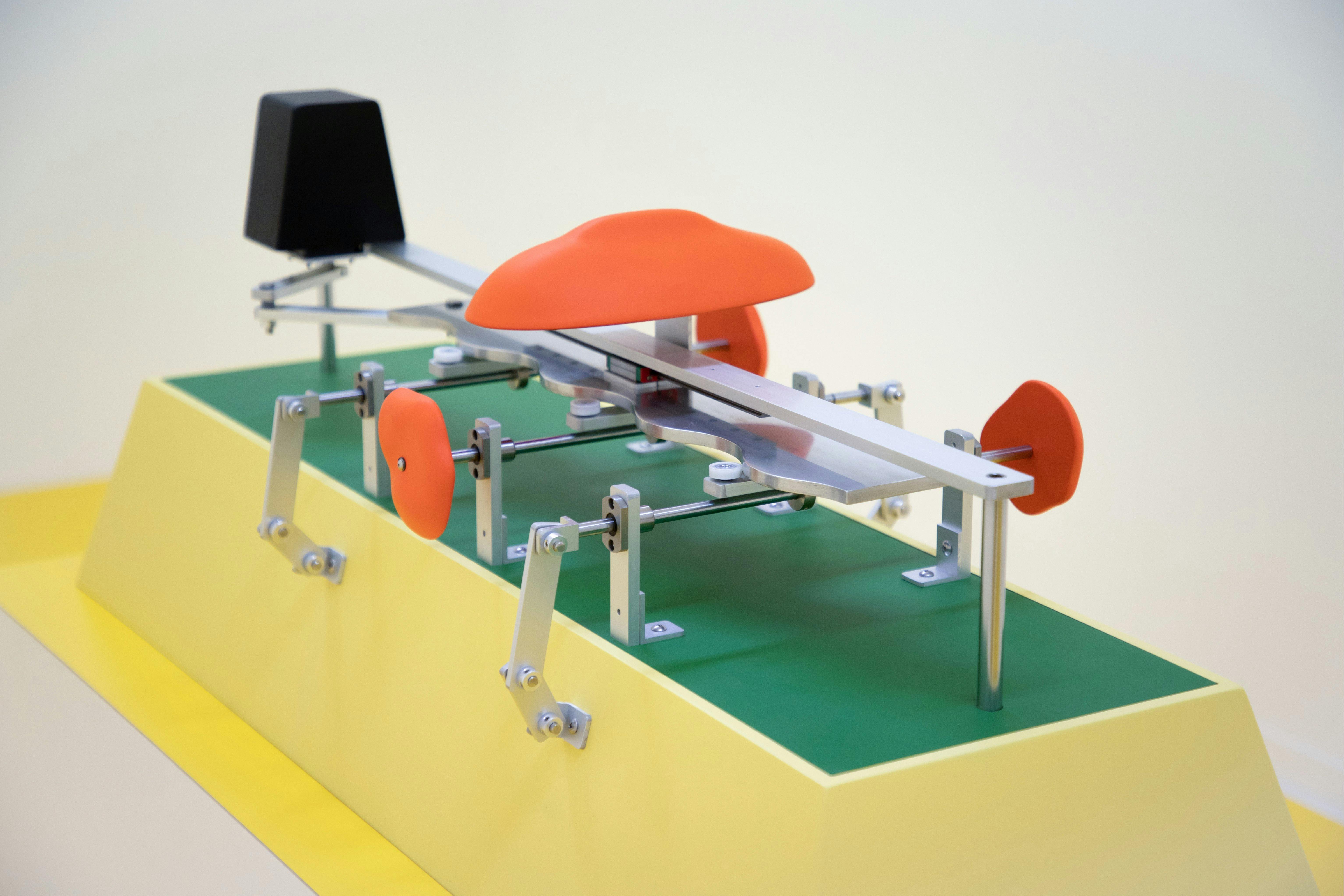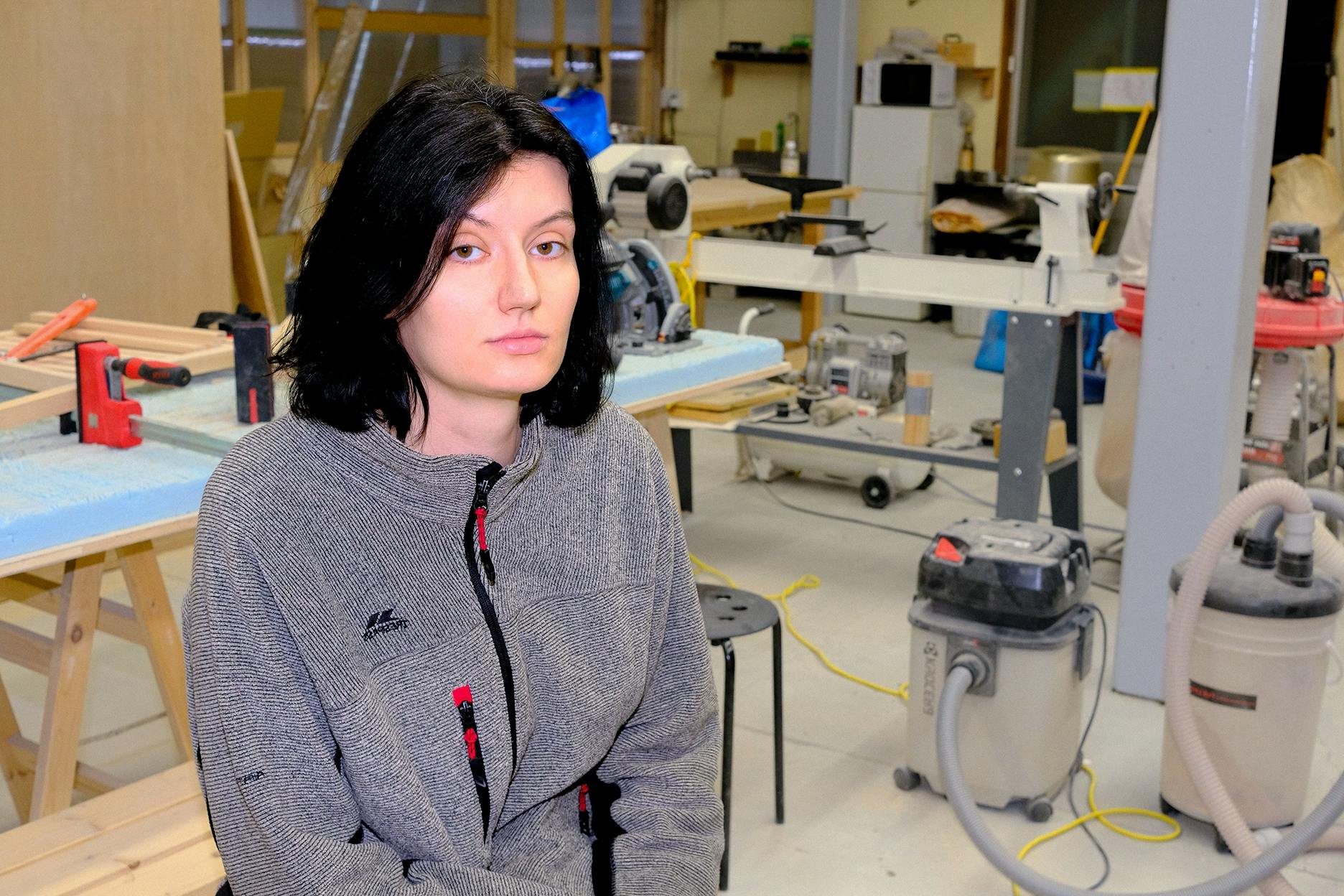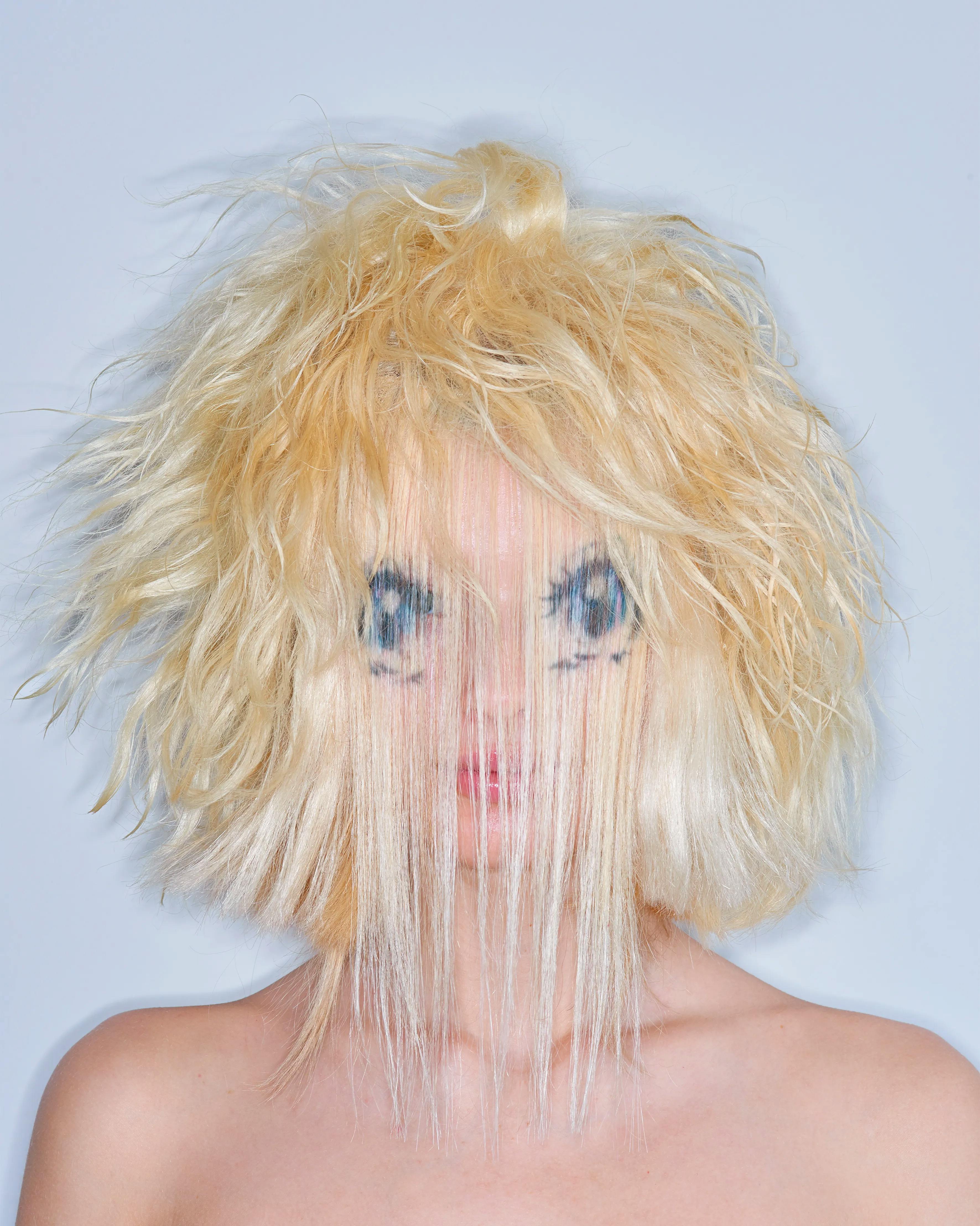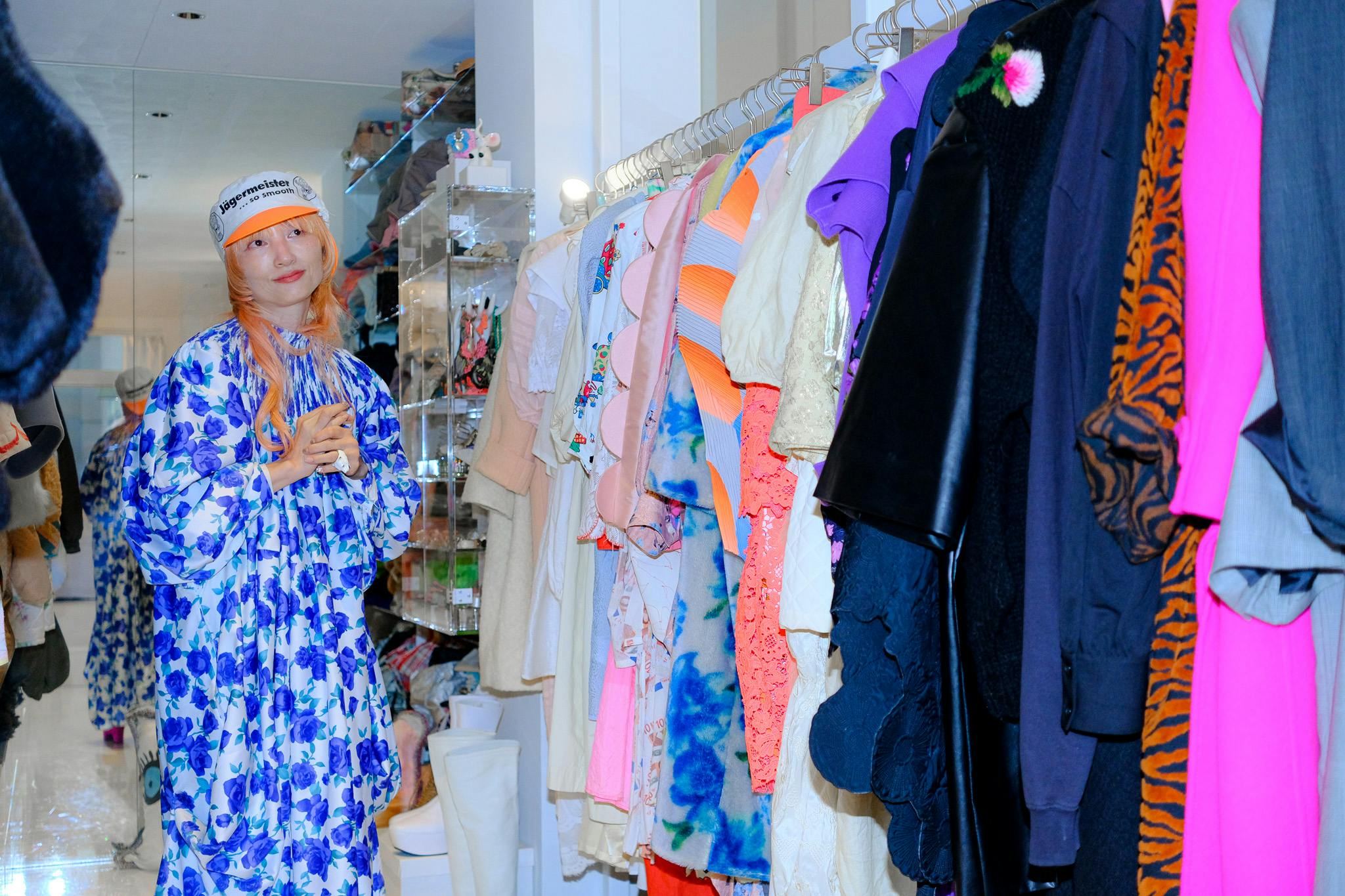
Home Visit with Megumi Fukiage
We visit the home and concept shop GIGINA of Tokyo-based creative Megumi Fukiage
Even before arriving in Tokyo, I had been following Megumi-san and her cult concept shop GIGINA, on social media for quite some time. I was in awe at how she was able to shapeshift and use her appearance and style as her moodboard. From flaming orange wavy locks one day to a sleek teal-blue bob the next, violet floral floor-length gowns to tartan mini-skirts and knitted choker collars, all sported with an innate elegance and ease. I wanted to know (and employ!) her confidence and approach to self-expression.
Arriving at the Tokyo loft, which she designed herself and lives in with her two daughters, we spent over four hours discussing her approach to life, career, transcending creative disciplines, raising children as a single mother through example and self-identity. I walked away deeply moved by her story, strength and, after several months of living in Japan as a woman myself, knowing how hard it would be to achieve all of this within the societal structure and unspoken 'rules' which seem to exist there. But as Megumi-san shows us, rules are made for breaking.
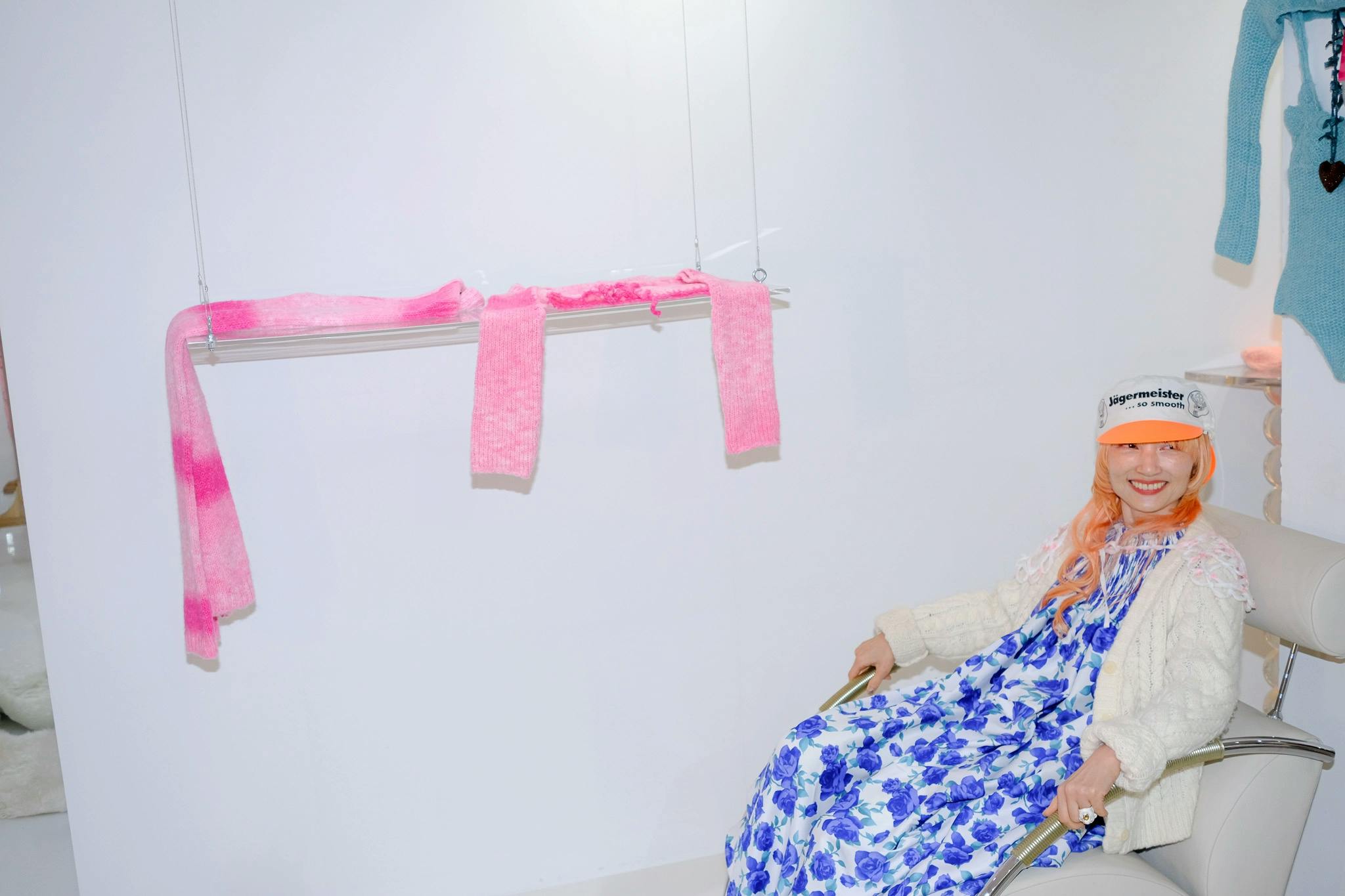
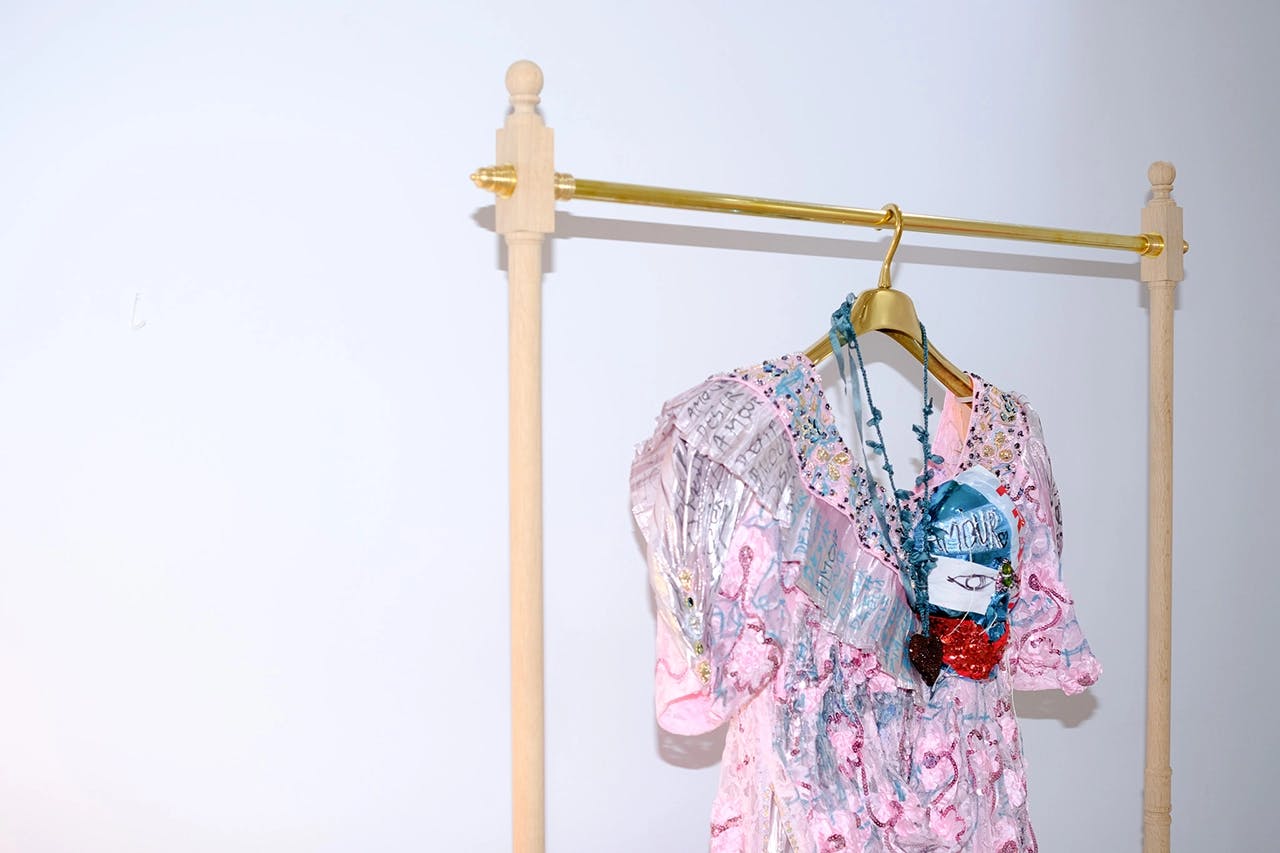
Please tell us about the concept of shop GIGINA.
GIGINAのお店のコンセプトについて教えてください。
I am often asked about the shop's concept, but it comes down to just carrying what I like. I place a lot of importance on the feeling that makes me jump when I look at it intuitively, so with that feeling, I feel like it would be great if I could connect things from all over the world like a patchwork and create GIGINA.
Among them, the most important thing is 'discomfort'. I think that everyone is attracted to things that feel out of place, so my job is to create a chemical reaction by combining them. I'm not a craftsman or an artist, but in that sense, I do think that I am a creator.
お店のコンセプトが何かについて聞かれること多いんですが、とにかく私が好きなものしか置いてないです。直感的に見た時にビビっとくる感覚をすごい大事にしてるので、その感覚で、 本当に世界中のものをパッチワークのように、繋ぎ合わせて、1つのお店できたらいいなっていう感じです。
なかでもすごく大事にしてるのは違和感。違和感があるものに対して、皆さんって引きつけられると思ってるので、これとこれは組み合わせないでしょっていう世界のものを組み合わせることで 化学反応を起こすのが私の仕事だと思ってます。わたしは職人とかアーティストじゃないけど、 そういう感覚の意味では、自分はやっぱクリエイターだと思います。
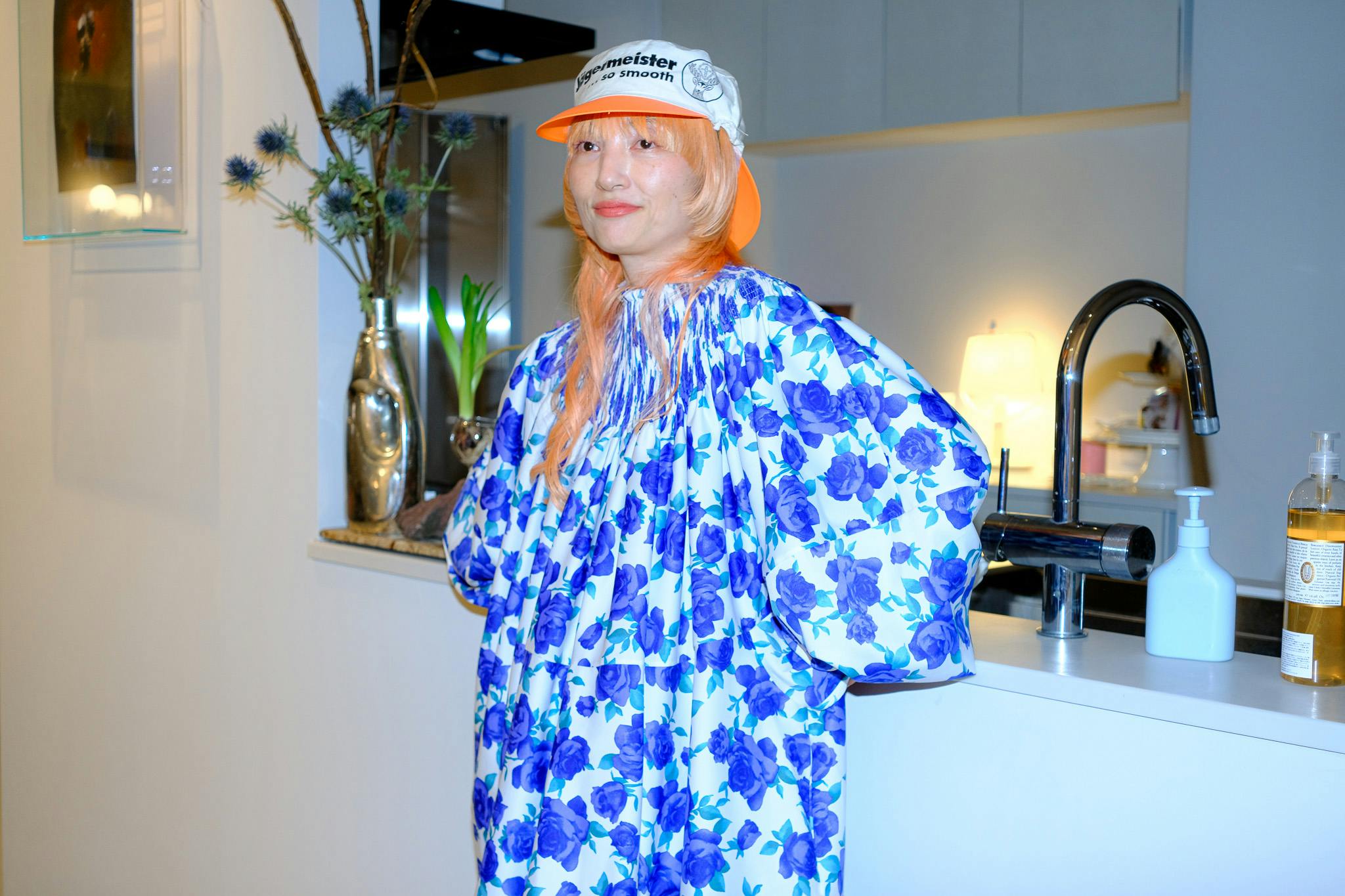
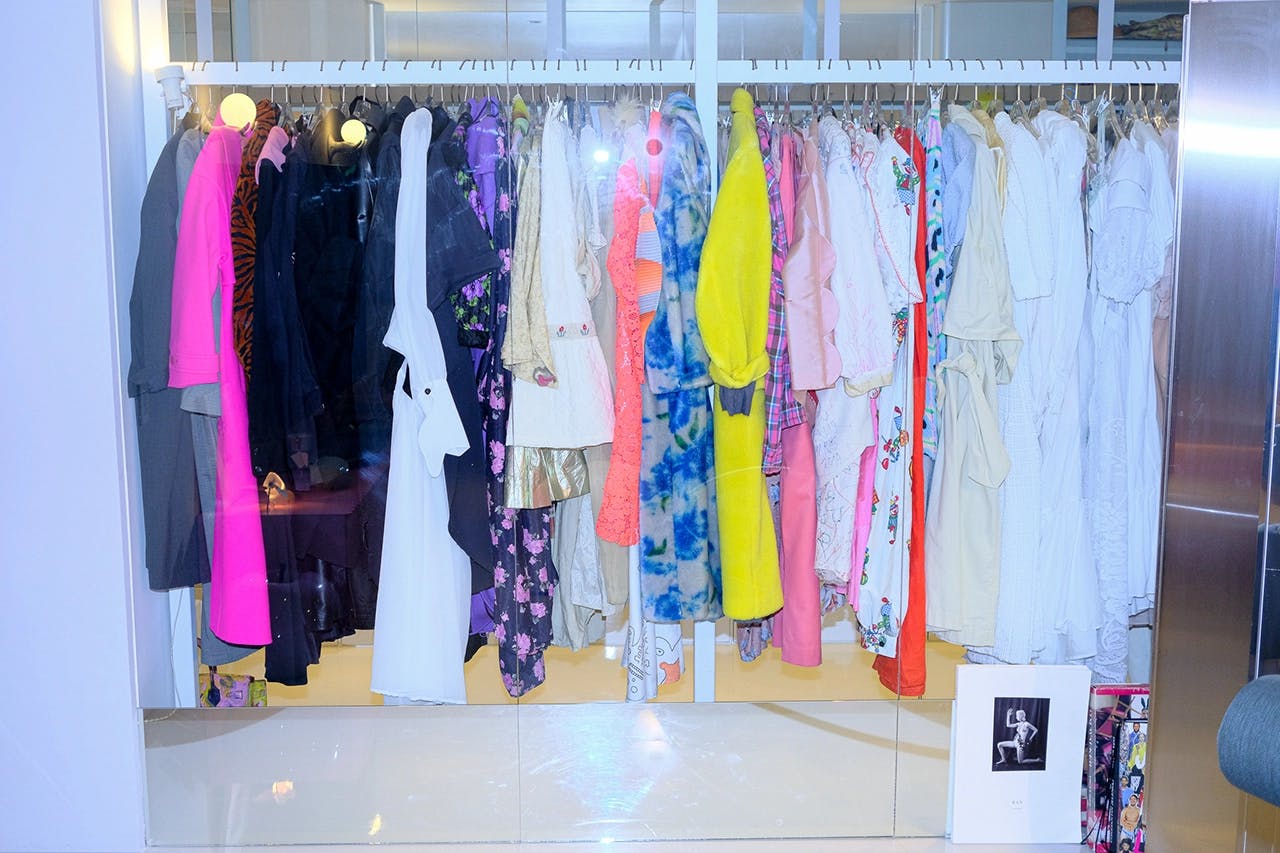
How did you develop your creative sense?
センスをどのように醸成させたのですか?
I entered the fashion world at the age of sixteen, but I think I had a sense of being different from other people as far back as I can remember. Japanese people have a culture of trying to eliminate things that are 'different', and they value common sense even at school. Ever since I was a student, I've felt frustrated and lonely, but when I was looking for something I could use as a point of strength, I thought fashion was the only thing – so I decided to get into this world. There are lots of other people who feel different, black sheep, outsiders. I was thinking about what I could do for them.
私は16歳でファッションの世界に入ったのですが、 物心ついた時から人と違う感覚があったと思います。日本人は人と違うもの排除しようとする文化があって、学校でも常識的なものを重んじる。それを学生の時からずっと悔しくて孤独を感じていたけど、逆に武器にしてやれることを探していたら、ファッションしかないなと思ってこの世界に入ったんです。世の中には私みたいに人と違うと感じる人がいるから、その人たちのために何かできることないかなということを考えていて、自分は元々お洋服好きだったからこの業界に入ったんです。
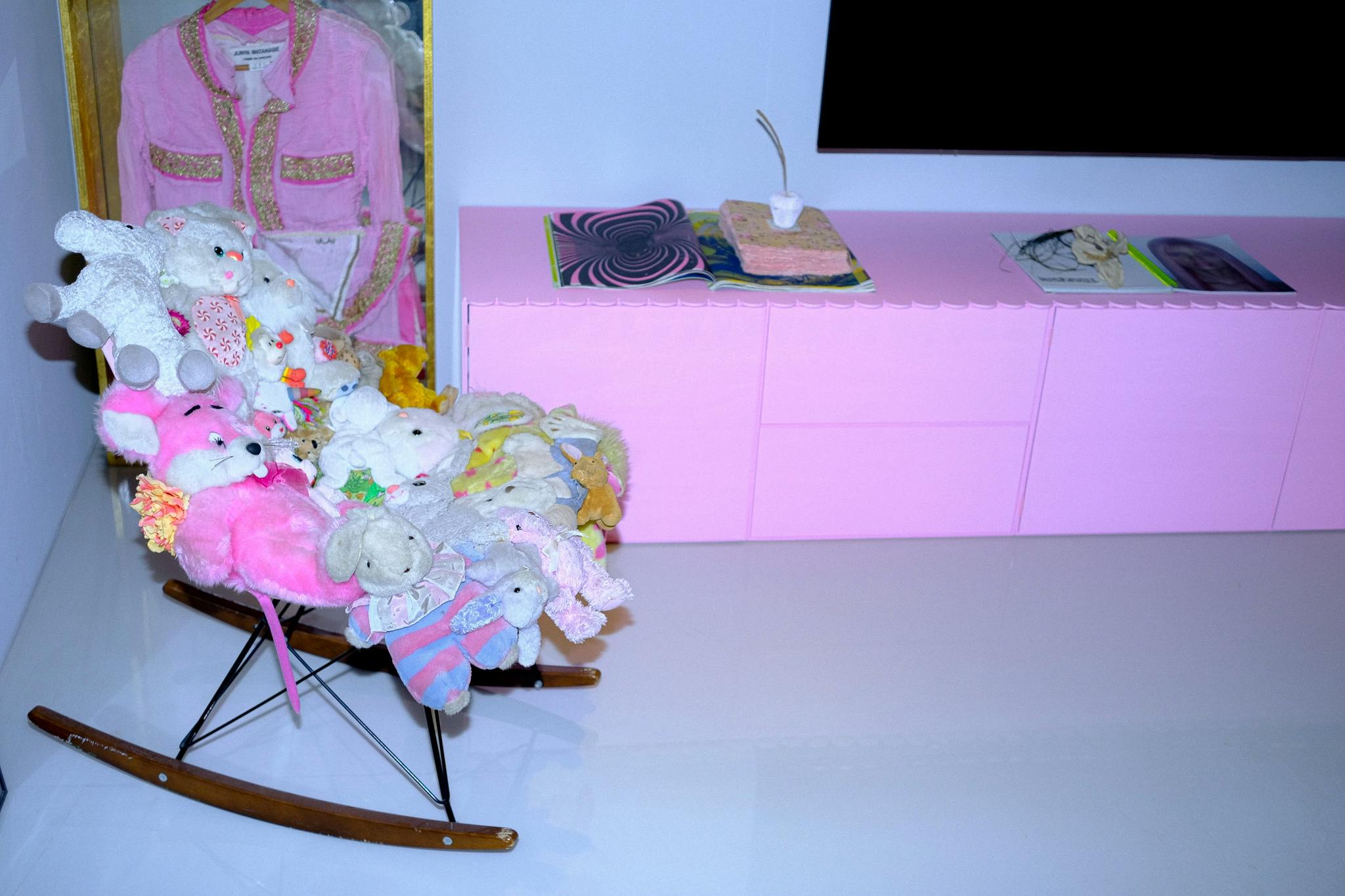
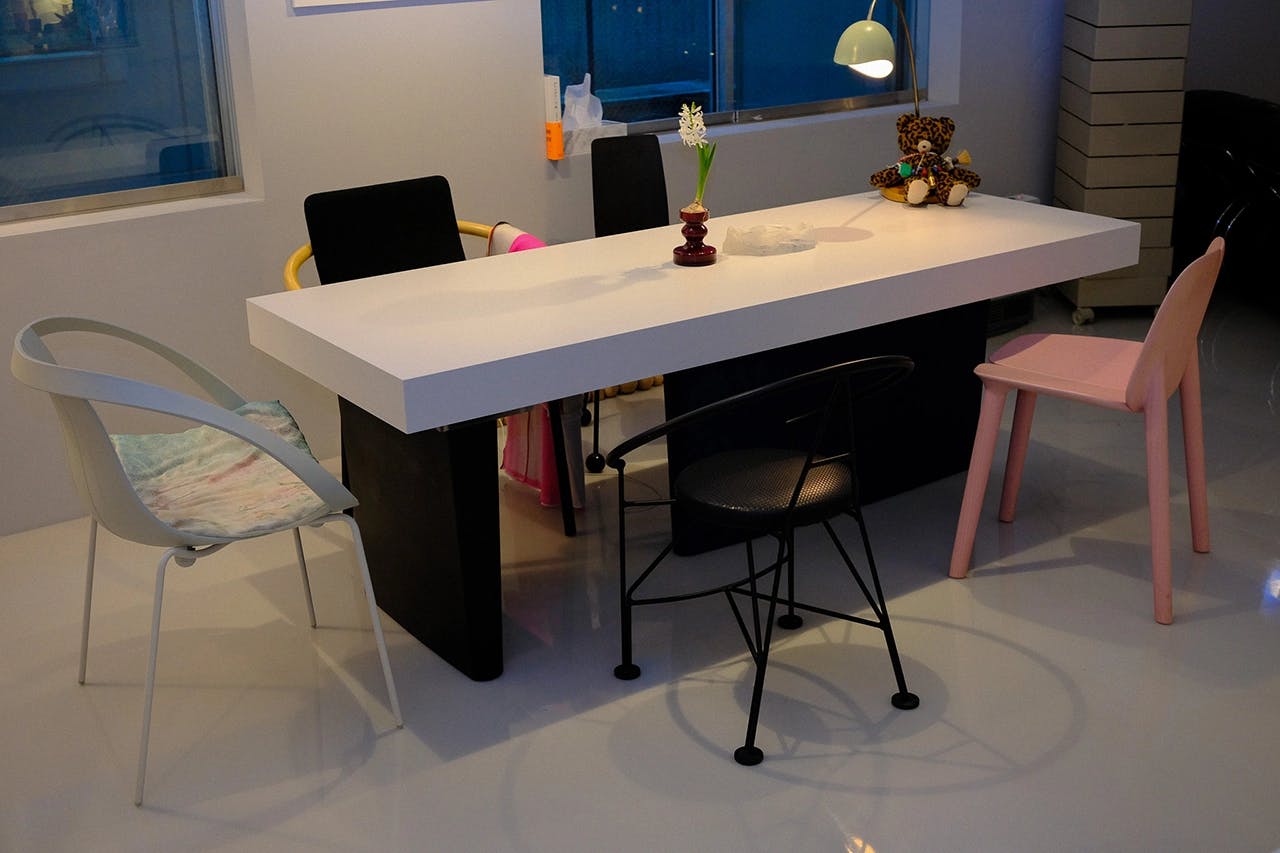
How did you first start GIGINA?
どのような経緯でGIGINAを始めましたか?
When I was fifteen, I made up my mind to open a shop by the age of twenty-five, and I came to Tokyo by myself. After learning the basics of fashion, I gained experience working as a stylist, interior decorator, and florist. Four years later, I returned to Fukuoka and continued working as a stylist, then opened the first iteration of my shop, GIGINA, in Fukuoka. For the next ten years, I worked tirelessly with the aim of creating a “store that will last for 100 years” rather than a store with big sales.
15歳の時に、「25歳までにお店を必ず開く」と決意して、1人で東京に出てきました。ファッションの基礎を学んで、その後スタイリストやデコレーター、フローリストのお仕事で経験を積んで、4年後に福岡に戻ってスタイリストを続けて、目標通り25歳でお店を実現させました。それからの10年間はすごく売れる店よりも「100年続くお店」を目標にして、がむしゃらに動いていました。
What kind of reaction did the people around you have when you started your shop at a young age?
若くしてお店始められた時に、周りの方はどのような反応がありましたか?
There was a lot of opposition from people around me, and I was told that I would fail. But I would never know unless I tried. I needed to do something on my own, so I didn't really have the option to fail. However, the general Japanese way of thinking is that it is good to act on the assumption that things will go wrong. To start from a place of, "What if things go wrong?" or "What if customers stop coming?" I really hate this way of thinking. If you think things are going to go wrong, then they certainly will, and if you think things are going to go well, you'll act in a way to make sure that things go well. If you start by looking at the goals that you failed to reach, you'll probably end up stopping there.
たくさん反対されましたし、失敗するって言われていました。でもやってみないとわからないし、失敗しないように自分でなんとかするしかないって思ってました。でも一般的な日本の考え方だと、「もしダメだったらどうするの?」とか、「もしお客さん来なくなったらどうするの?』とか、 ダメになったことを想定して行動することがよしとされています。私はその考え方がすごく嫌いで、ダメになると思うからダメになるし、うまくいくと思ったらうまくいくように自分が行動する。最初にダメになった先のゴール を見てると、それ以下にしか多分ならないですよね。
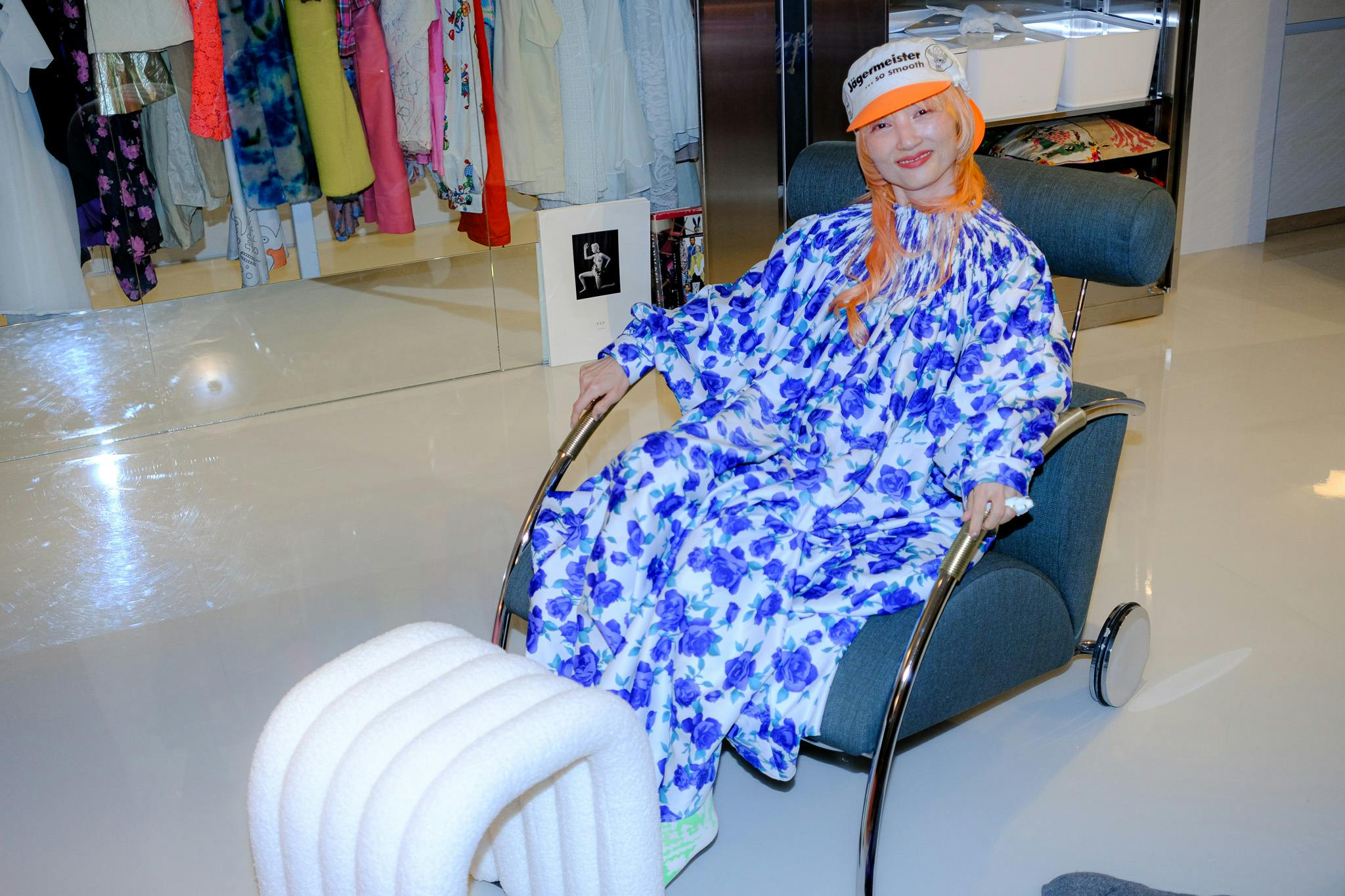

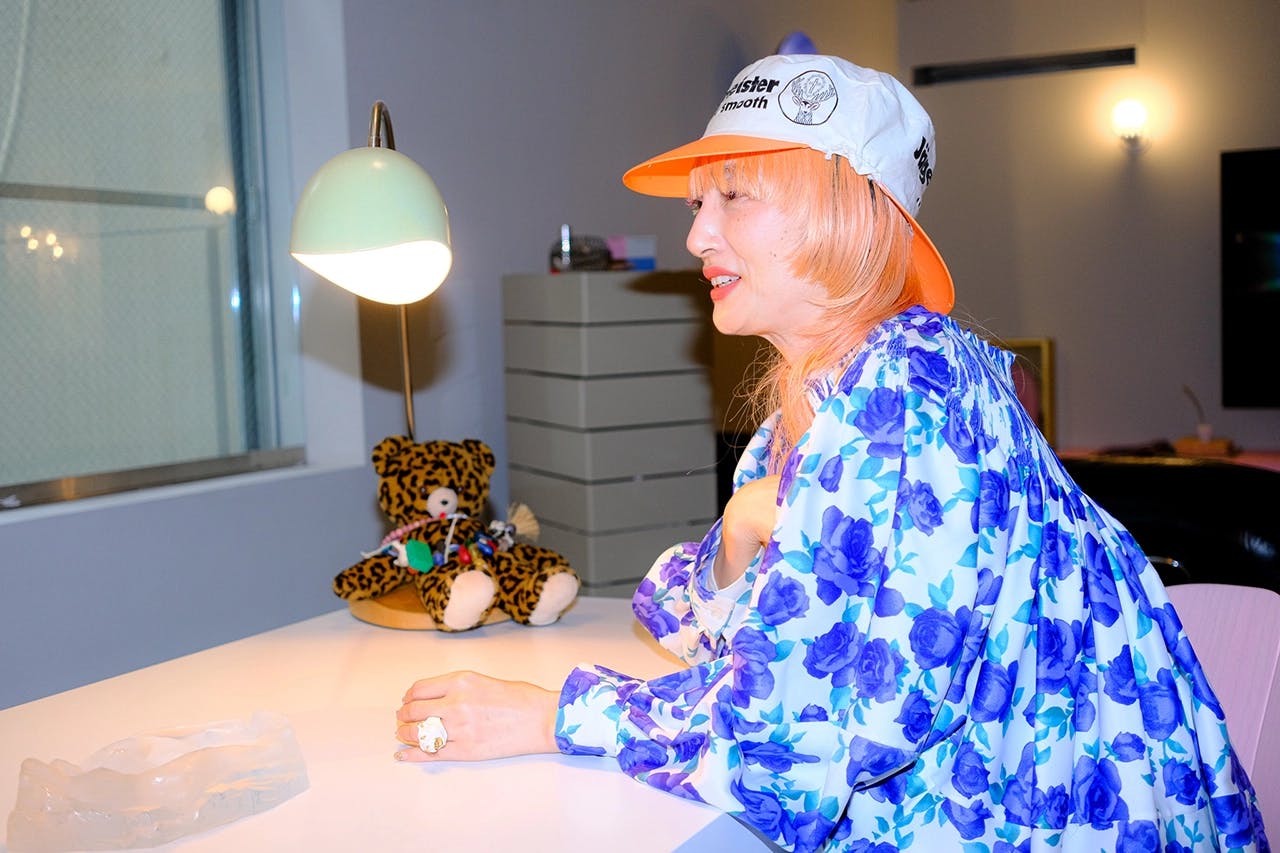
What kind of career have you taken since you started the shop?
お店を始められてから、どのようなキャリアを歩んできましたか?
Ever since I was young, I had a lot of ideas for fashion and interior design, but I was frustrated because I didn't meet anyone who could turn them into reality. But now, because of the experience and career I've built up, I've finally found the right business partner. The longer you do and master something and the more recognised you become for that, the more people come to you and want to collaborate.
When I opened my shop in Fukuoka at twenty-five, there weren't any concept shops that were importing foreign fashion pieces in Kyushu, so my shop was the first. In addition, at that time, there was no Internet or social media, so the only communication tool was talking with people who came directly to the store.
I moved to Tokyo eight years ago, but it wasn't because I wanted to grow GIGINA necessarily, but actually because of a big turning point in my personal life. I had been with my partner for twenty-three years; we had two daughters and ran the shop together. We were together 24 hours a day, splitting everything in half, but about ten years ago, I lost him in an accident at sea. It was a moment when my life changed overnight, and my world was turned upside down.
A little while later, when my daughter was deciding where she wanted to go to high school, she said she wanted to go to a school in Tokyo and live in a dormitory on her own. When I talked to my younger daughter, who was in elementary school at the time, she said that she didn't want the family to fall apart now. I thought it would be better for everyone to be together, so we decided to come to Tokyo together as a family.
At first, when I came to Tokyo, I thought that I would quit the shop and stay close to my children. I came to Tokyo alone at the same age as my daughter, and I always remember the intense pain and loneliness I felt then. When I explained that my daughter, who had lost her father, would be overwhelmed by the feelings I had experienced, I thought it would be a huge burden on her. The first or two years you experience as an adult may not be a big deal, but I thought it was a period that would have a big impact on the future of a child's life. So when I came to Tokyo, I thought I'd do something else, but a customer persuaded me that it would be better to keep GIGINA alive, in any form. In one room, we reopened a complete reservation-only shop in a small apartment.
東京に拠点を移したのが8年前ですが、GIGINAを大きくしたいからという理由がきっかけではなく、実は私と家族に起きた大きな転機が理由でした。私にはかつて23年間ずっと一緒にいた結婚相手がいました。娘も2人生まれてお店も一緒に経営して、24時間ずっと一緒で全て半分に分けてた人生だったんですが、10年ほど前に、彼を海の事故で亡くしました。一晩で人生が変わって、天と地がひっくり返った瞬間でした。
少し経ってから娘が高校進学を検討している時に、やりたいことがあるから東京にしかない学校へ入学して、1人で寮に入りたいって言ったんです。下の子が当時小学生だったんですが、相談してみたら、今は家族がバラバラになりたくないって言ったんです。私もみんなが一緒にいることの方が正しいと思ったから、家族みんなで一緒に東京に来ることになったんです。
だから、GIGINAを東京進出させようと思ったのではなくて、逆にお店をやめて今は子供に寄り添おうって当初は思ってました。なぜかというと、ちょうど娘が上京を志した時と私自身も同じ年で東京に1人で来て、その時の壮絶な辛さとか寂しさっていうのもずっと覚えてたんです。パパを失ってる状態の娘に、私が経験した気持ちが重ってしまうと思うと、とてつもない大きな負担になるなと思ったんです。大人になってからの1、2年って大したことないけど、今の子供にとっては先の人生に大きな影響を及ぼす期間だと思ったんですよね。なので東京にきたら他のことしようって思っていたんですが、元々すごく仲良かったお客様とか、知り合いのデザイナーにGIGINAをどんな形でも残した方がいいと説得されて、 それで8年前に小さなアパートの一室で、完全予約制のお店をまた再開したんです。
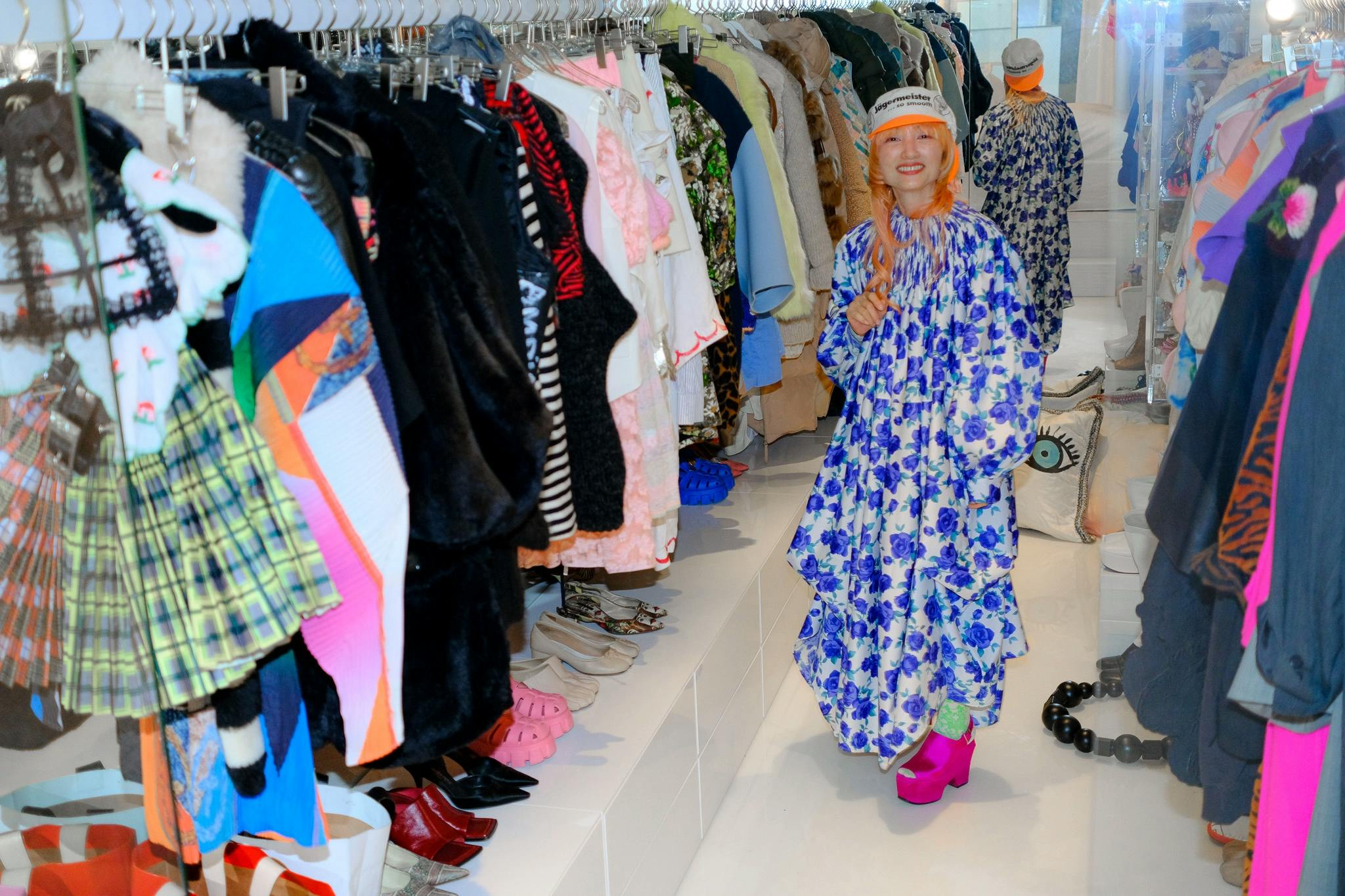
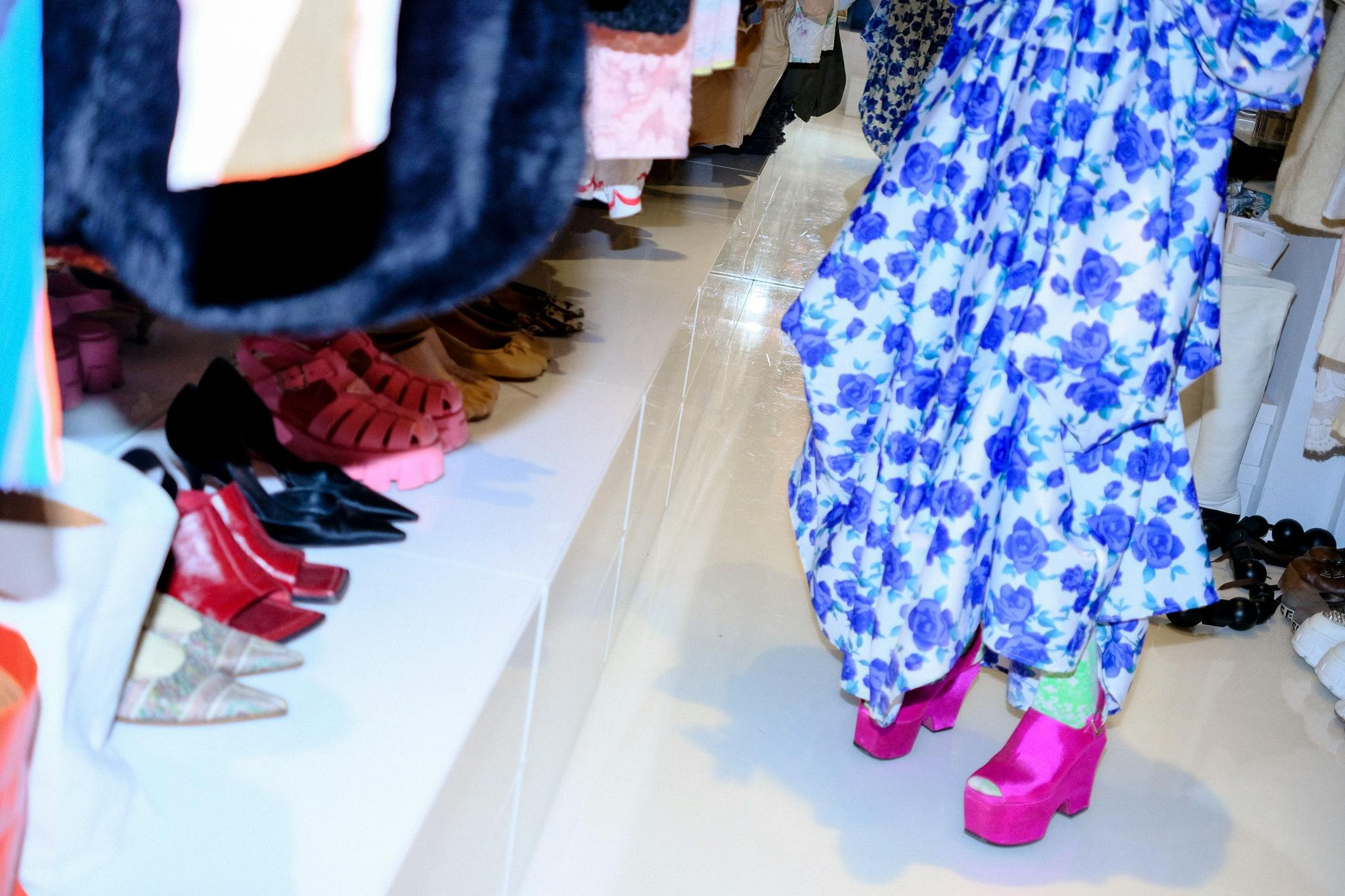
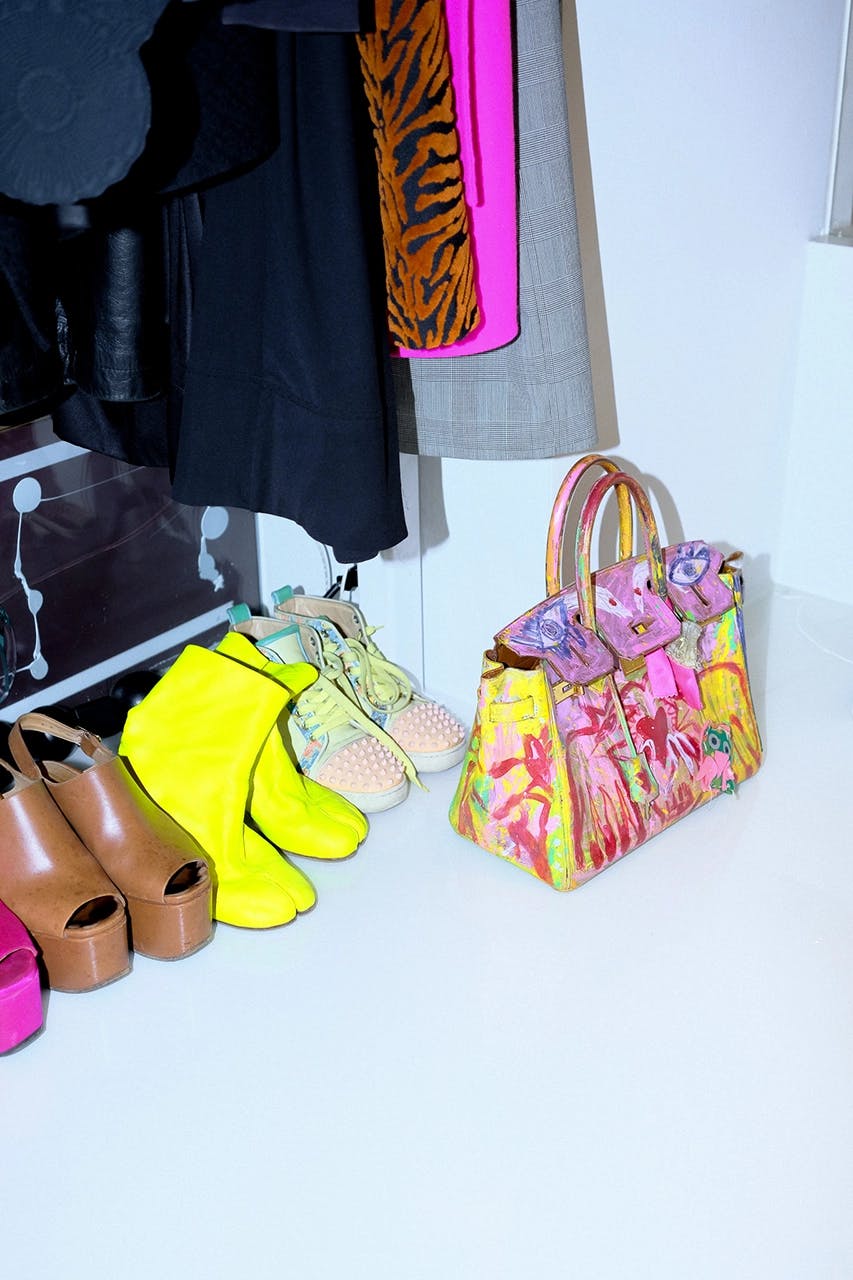
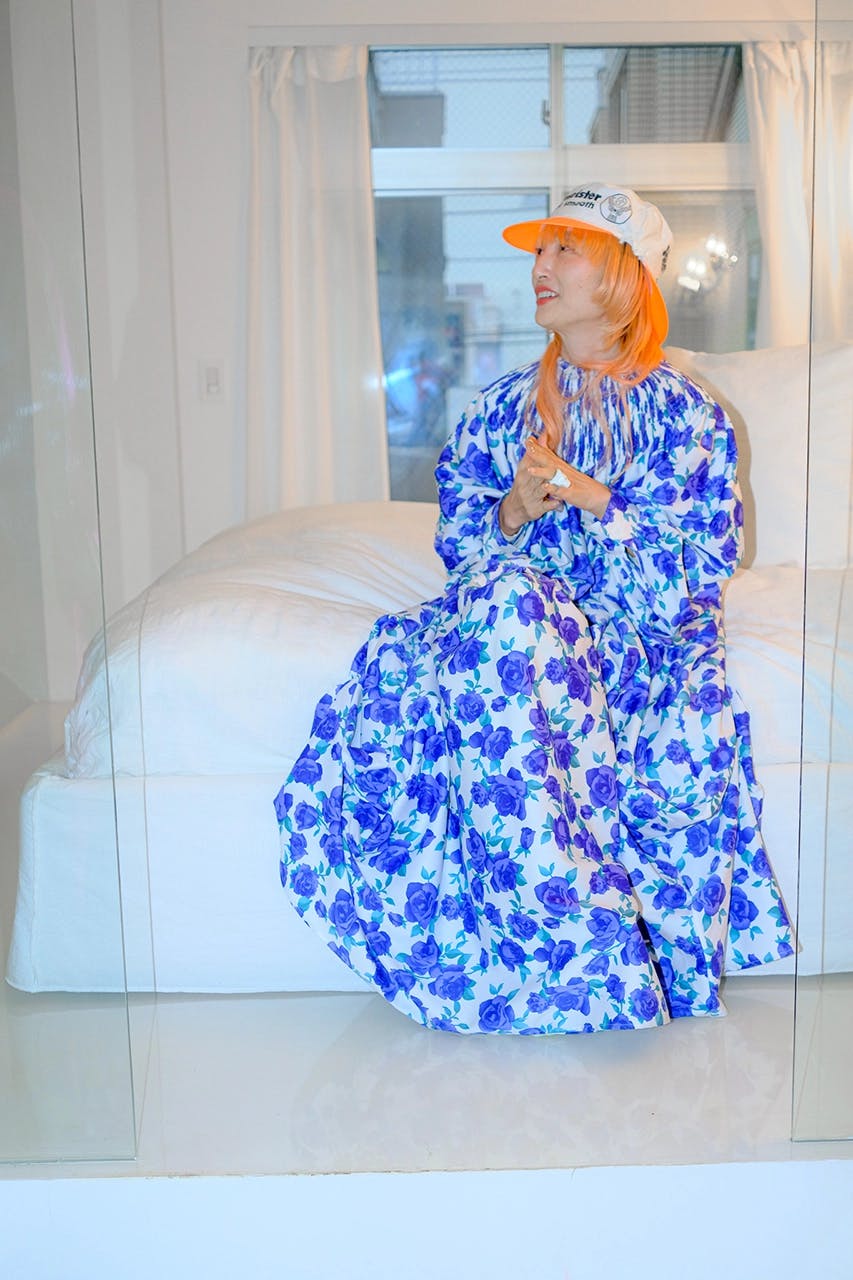
In order to stick to what you want to do in a high-pressure environment like Japan, for example, how would you give advice to your daughter?
日本のようにプレッシャーの強い環境の中で自分のやりたいことを貫くために、例えばお嬢様にアドバイスをされるとすればどのように声をかけますか?
My shop already existed when they were born, so they've seen me making a living doing what I want to do, so I don't have to put it into words; they probably know that "It's okay to be free." But if I had to give them one piece of advice, for example, even if a teacher says something unreasonable at school, the teacher is also human and can make mistakes. Just because a teacher tells them something doesn't automatically mean that they are correct. So when a question arises, I tell them to say, "This is what I think." If you don't express your opinion properly, you'll have to put up with it even when you grow up. That's why when I think something is wrong, I raised them to ask questions properly and that they don't have to do things that they disagree with.
彼女たちが生まれた時にはすでに私のお店が存在していたので、自分のやりたいことでお金を稼いでいて生活しているのを見てきてるから、 言葉にしなくても「自由でいいんだ」っていうことは多分わかってるんですよ。でも強いて言えば、例えば学校で先生が不理屈なこと言われることがあっても、 先生も人間だから間違えることある。だから、自分の信念を先生がそう言ってるから、それが正しいって思うんでなくて、 クエスチョンが生まれたら「自分はこう思うんです。」ってちゃんと話をしなさいって伝えます。自分の意見をきちんと伝えないと、大人になってもずっと我慢しなきゃいけないよって。だから何かに対しておかしいなって思う時は、ちゃんと質問しなさいっていう風に育てて、それでも自分が納得できないことはやらなくていいって教えています。
What is your vision for venturing into furniture design and hospitality?
ファニチャーデザインやホテルの仕事はどういう構想ですか?
Human life consists of needing food, clothing, and shelter, so I thought it would be great to express myself throughout all of these disciplines. Perhaps I'm entering the final chapter of my life, and I decided to do everything I wanted to do, so last year, I moved from another location in Tokyo to my current location.
I think that each person's comfort level is different, but the reason why I'm planning a furniture collection and hotels is that I wanted to pursue what comfort means to me. Ever since I started working as an interior designer, I've always loved creating spaces, and I've always wanted to do it.
I am also interested in wellness. Humans cannot enjoy everything unless their bodies are healthy. So I think it's very important for wellness, so I'd like to develop a related business someday. Four years ago, I was also a yoga teacher with a national alliance qualification. At that time, I learned what it means to keep my body healthy.
人って衣食住で人生が成り立ってるので、それにまつわることで、自分が等身大になって何か表現できればいいなと思っていました。多分わたしは人生の最終章に入りつつあるなって思っていて、やりたいこと全部やろうと思って、昨年都内の別の場所から現在の場所に拠点を移しました。
家具やホテルを計画しているのは、人によって心地良さってみんな違うと思うんですが、私にとっての心地良さというものをもっと追求したいと思ったことがきっかけです。デコレーターの仕事してた時から、もともと空間作るの好きだったからずっとやりたかったのですが、やっと素敵なデザイナーや職人と出会うことができ、実行に至っています。
それにウェルネスにも興味があります。人間は体が健康でないと全てのことにおいて楽しめないじゃないですか。なのでウェルネスに対してもとても大事だと思ってるので、いつかそれに関連するビジネスも展開したいです。私は実は4年前に全米アライアンス資格を持ったのヨガ講師もしてたんですよ。その時に自分の体を健康に保つことってなんなのかっていうことを学びました。
When my eldest daughter was in her rebellious phase, she told me, "You are good at what you do, so you don't understand the feelings of people who don't have talent." She wasn't able to do what she wanted to do, and she hit a wall and was in a lot of pain. I was shocked when I heard her say that. So, I wondered what she would think when she saw I could do something in a completely different field without any experience or talent. What I became wasn't important, but I wanted her to see the process of how I achieved what I have in my life and career up close. Some people are born with talent, but I wanted her to know that even if they weren't if they wanted to be themselves, they could make it happen. I wanted to show my daughter how much I could do, even though I had no knowledge or talent for yoga.
There is a Japanese proverb that says, "Children grow up by looking at their parents' backs." In the same way, I feel that my child is raising me as a parent, and it feels like parent and child are raising each other. I don't think that the mom is always right because you are the mother or you are great just because you are a mother.
長女が反抗期のとき、「ママは自分が好きなことで仕事ができているから、 才能がない人の気持ちわからないでしょ」って言われました。 彼女はやりたいことがうまくできず、壁にぶち当たっててとても苦しんでいたんです。その一言を聞いた時に、私自身ものすごくショックだった。 じゃあ、わたしが今までと全く違う分野のことで何かを成し遂げることができたら、彼女それを見てどうか思うかしらって思って、ヨガのトレーニングに参加して3ヶ月で資格を取ったんです。
私が何になれたかということが重要なのではなくて、これを獲得するまでの過程を近くで見て欲しかったんです。生まれつき才能を持つ人もいるけど、そうでなくても自分がなりたいって思えば、それが叶うこともあるんだよっていうのを知ってほしかった。寝ずに勉強したりとか、体が硬いのにポーズの練習をしたり、辛いところを娘の前でさらけ出して、ヨガに関する知識も才能もない私がどこまでできるかっていうのを見せたかったんです。
「親の背中を見て子は育つ」っていうことわざが日本にはありますが、言葉じゃなくて行動を見て、人は学ぶものだと思っています。こういう経験の中で私自身も子供に親として育てられていると感じていて、親子でお互いを育てている感覚ですね。お母さんだから正しいとか、お母さんだから偉いとかじゃないと思ってます。
Thecolourblackmakesthepersonwearingitstandout,sothere'snowaytocheat.SowhenIwasyoung,IhadthisimagethatIcouldhidebehindbrightcolours.
Megumi Fukiage
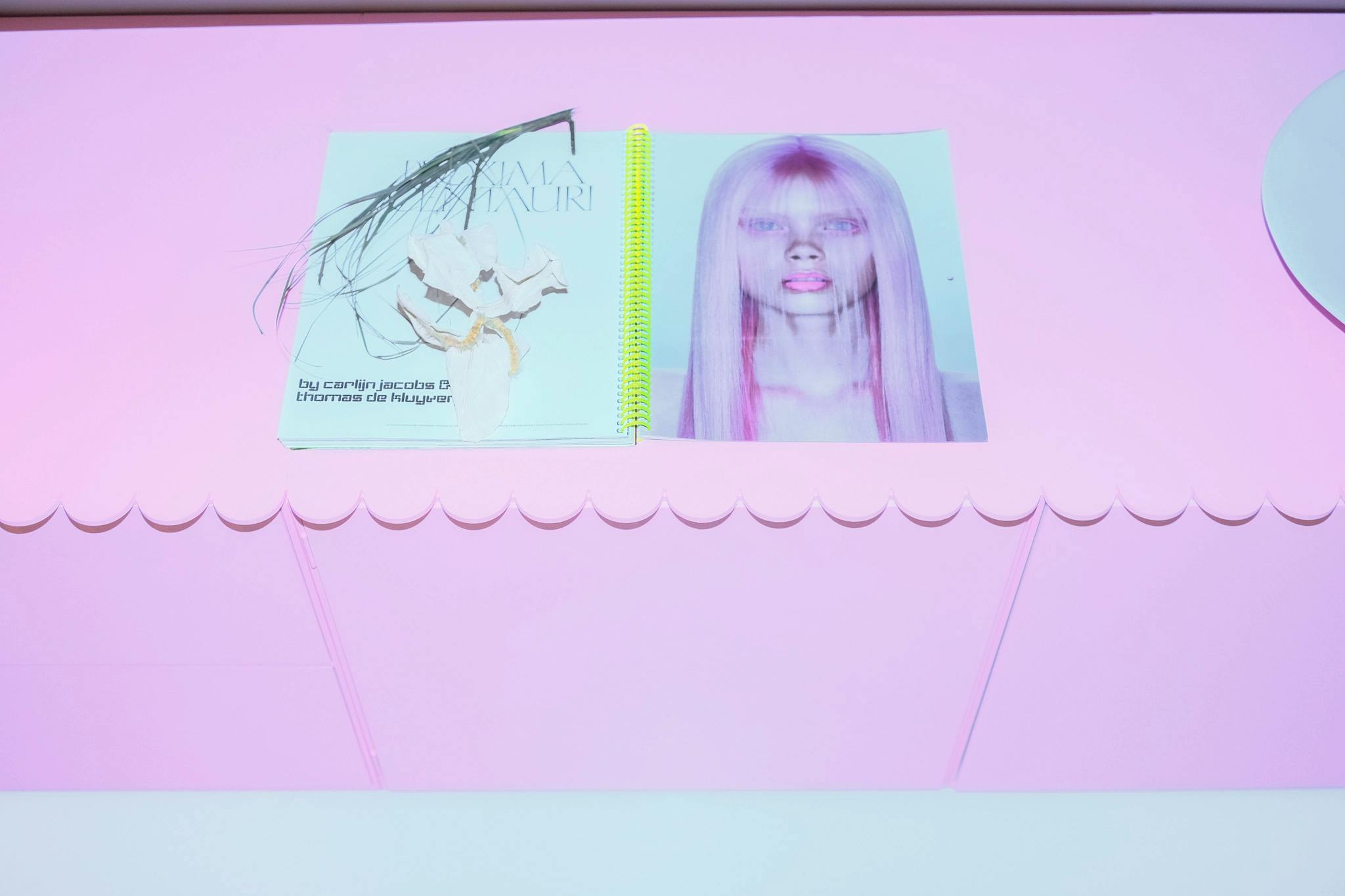
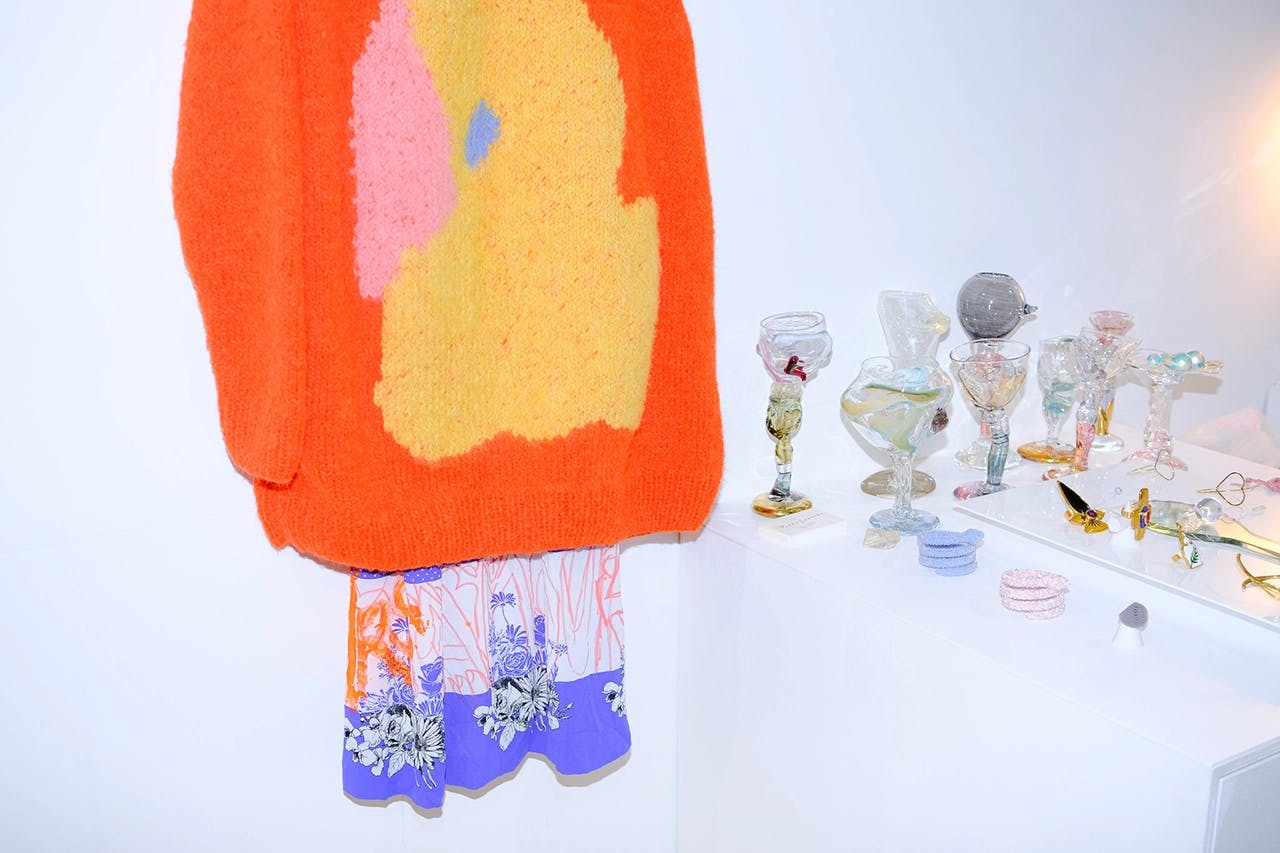
I feel that you have a unique sense of colour. How do you think you refined and acquired that?
独特の色彩感覚があると感じますが、どのようにすれば身につけられるのか、若者たちへアドバイスがあれば教えてください。
Since I was young, I have liked being surrounded by colours, and my love for colour may be the influence of my father. My father was a person who drew, took photographs, and wrote calligraphy. I think it is something in the blood. I think that all colours are derived from nature, and many colours are born by combining natural colours and adding something. Also, the colours of flowers and mountains change depending on the season, so I try to look closely.
When working with colour, depending on whether the red or blue is stronger, for instance, it can make the piece look slightly aggressive or, on the contrary, look soft. Colours affect our spirit, and I think the illusion of colour is amazing. That's why I also valued the use of colour in the store, and naturally, from a very young age, I thought about expressing things with colours rather than shapes.
On the other hand, when I was in my 20s, I found that neutral colours, such as white and black were much more difficult for me. Everyone around me wore black and white clothes, but I never wore black clothes until my twenties. The colour black makes the person wearing it stand out, so there's no way to cheat. So when I was young, I had this image that I could hide behind bright colours. So, there were times when I made myself colourful because I didn't have confidence in myself. But as I grew up, I experienced many things, and in my thirties, I finally learned to wear black and white. There is a sense that colour variations have expanded within me.
幼い頃から色に囲まれるのが好きだったので、私の中で色は難しくないことで、特別に勉強をしていません。色が好きなのはもしかしたら父の影響かもしれないんです。父は絵を書いたり、写真を撮ったり、書を書いたりとかする人だったんですよ。だからそういう感覚は、父の血を引いてるのかもしれないです。でも自然の色はよく見ています。基本的に全ての色は自然から生まれていると思っていて、自然の色を組み合わせて何かを足していくことでたくさんの色が生まれていく。それに花や山の色も、季節によっても変わるので、よく見るようにしています。
色ってグリーンでもいろんなグリーンあるし、グレーでもいろんなグレーがありますよね。赤みが強いのか、青みが強いのかっていうだけで、すごいちょっと攻撃的に見えたり、反対に柔らかく見えたりする。色で精神も左右されるし、色の錯覚ってすごいと思うんですよ。だからお店の色使いも大事にしていて、 形よりも色で表現するっていうものをすごい若い時から自然に考えていました。
反対に20代の時に私にとってはニュートラルカラーの白や黒の方がすごく難しく感じてたんです。周りはみんな黒や白の洋服ばかり着ていたけど、私は20代まで黒い服を着たことなかったです。 黒って、その人そのものが全部浮き彫りになる感じがして、ごまかしようがないじゃないですか。なので色を使った方がごまかせるようなイメージが、若い頃にはあったんです。なので、自分に自信がなかったからこそ自分をカラフルにしてた時もあったんですよね。でも大人になるにつれていろんなことを経験して、30代ぐらいからようやく黒や白とか着れるようになりました。自分の中で色のバリエーションが広がっていった感覚があります。

